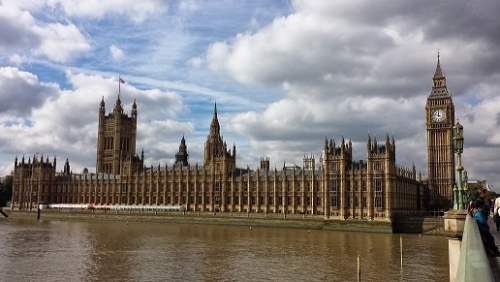FCA begins Panama Papers spring-clean in UK
Chris Hamblin, Editor, London, 8 April 2016

The UK's Financial Conduct Authority has given 20 banks a deadline of 15th April to check to see whether they have links to Mossack Fonseca.
The London Financial Times has published a leaked letter that the regulator has sent to the banks on the subject. The FCA admitted to Compliance Matters that the number of banks was correct and that the deadline existed, but would not say what the FCA would do if the banks were to disobey (as the letter is not a formal rule) or to what other financial institutions the FCA was issuing such a deadline. A spokeswoman merely said: “The FCA has written to a number of firms about this issue, including those on our Systematic Anti-Money Laundering Programme, and we are working closely with a number of other agencies who are also looking at this. As part of our responsibility to ensure the integrity of the UK financial markets we require all authorised firms to have systems and controls in place to mitigate the risk that they might be used to commit financial crime. We have also today published our annual Business Plan which identifies financial crime and anti-money laundering activity as one of our priorities for the year.”
There is some mention of money-laundering in the business plan. Its suppression is listed alongside six others as the FCA's top priorities for 2016/17, but when one looks at those other priorities – it is obvious that they are so vague as to take in perhaps half of the financial services sector, or perhaps more. The small anti-money-laundering section of that document contains nothing above the level of platitudes except for a rather brave criticism of the Chancellor's pension policy - a brief assertion that “pension reforms create a new market for scammers.” Other notable features include a desire to see to it that “firms’ AML processes do not exclude people unfairly or unreasonably from using financial services – we will explore new ways, including technology, of solving this issue.”
The FCA assesses major banks in accordance with its so-called Systematic Anti-Money Laundering Programme. This effort began early 2012 and initially covered 14 major retail and investment banks that operated in the UK. It entails intrustive reviews that involve detailed testing and extensive interviews of the most important staff members who are responsible for each bank’s business, for putting anti-money laundering processes in place and for conducting AML controls. FCA people often visit branches and the operations of UK-incorporated firms outside the European Economic Area, where they are required to follow AML standards that are 'equivalent' (a vague word that opens the door to plenty of arbitrary diktats from the Government) to those in the UK. In the first year of this programme the FCA assessed and visited five British banks and conducted work overseas in India, Singapore and Switzerland for three of them.
French Caldwell, an ex-Gartner fellow who now works at MetricStream, told Compliance Matters that the leaked documents would probably lead to further scrutiny of tax havens and also suggested that businesses should use the information to cleanse their contact lists.
“We live in a world without secrets and people with skeletons in the cupboard are finding it harder to keep them there. Just as Snowden’s revelations changed the face of national security, the high-profile cases of money-laundering, tax avoidance and sanction-dodging in this leak will initiate a huge clamp-down on tax havens and the individuals who exploit them. Furthermore, the documents will fuel the 99%-versus-1% inequality debate. There’s an increasing populist movement emerging all over the globe and, with the growing support of hacktivists and whistle-blowers, it is campaigning against the upper income individuals who are perceived to benefit greatly from changes in the economy.
“The FCA's decision shows that regulatory agencies are taking this seriously. If they haven’t already started already, I’d expect many more organisations to carry out a similar process and have a spring-clean, scrubbing named individuals and organisations from their business contacts. Indeed, I’d be surprised if businesses didn’t use the leaked documents to sanitise their own contacts and create a blacklist to ensure that they are not dealing with unsavoury characters. If a company is found to be linked to one of the ousted wrong-doers, there will be a reputational impact and perhaps even legal ones. Therefore, they must act quickly to limit their exposure. It’s essential for companies to develop and enforce stricter sanctions around their third-party ecosystem. This will enable them to have greater control over who they are dealing with, mitigating any potential risk to reputation.”












